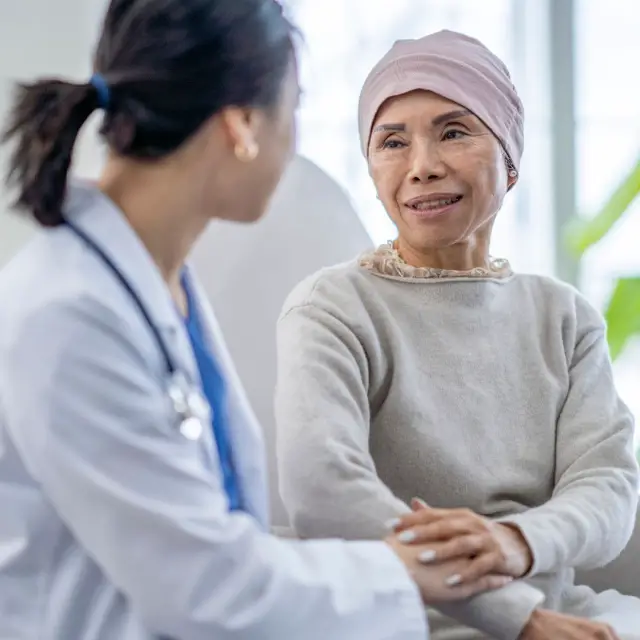World Cancer Day, celebrated every year on 4 February, is an opportunity to reflect on the global impact of this disease, raise awareness, and encourage concrete actions for its prevention and treatment. Established in 2000 during the World Summit Against Cancer for the New Millennium in Paris, the day's main objective is to reduce the stigma associated with cancer and mobilize communities, governments and organizations to face this challenge.
The global impact of cancer
Cancer is one of the leading causes of death worldwide. According to the World Health Organization (WHO), nearly 10 million cancer-attributable deaths were recorded in 2020, accounting for one in six global deaths. The most common cancers include lung, breast, colon, prostate and stomach cancer.
The impact of cancer is not limited to those diagnosed. It also affects their families, communities and economies. The costs associated with treatment, lost productivity and emotional impact are immense. In addition, there is a significant disparity in the burden of cancer between high- and low-income countries, with the latter being hit hardest due to a lack of resources and access to adequate healthcare.
Objectives of World Cancer Day
World Cancer Day seeks to promote a number of key objectives:
Public awareness: Informing the population about risk factors, early symptoms and the importance of early detection.
Prevention: Promote healthy habits, such as quitting smoking, maintaining a balanced diet, exercising and reducing alcohol consumption.
Equal Access: Advocate for more equitable health systems that ensure access to diagnosis, treatment and palliative care for all people, regardless of their socioeconomic status.
Research and development: Boost investment in research to develop new therapies and improve existing ones.
Recurring themes
Each year, World Cancer Day focuses on a specific theme to direct global efforts. For example, between 2019 and 2021, the “I Am and I Will” campaign emphasized the individual role in the fight against cancer. This message encouraged people to make a personal commitment, whether by adopting healthy lifestyles or supporting those facing the disease.
In recent years, the focus has broadened to address equity issues. The Closing the Care Gap campaign highlighted inequalities in access to cancer health services and the need to reduce them.
Risk factors and prevention
Many cases of cancer are preventable by reducing exposure to risk factors. Common ones include:
Tobacco use: Responsible for approximately 22% of cancer deaths.
Unhealthy diets and obesity: Associated with several types of cancer, including colon and breast cancer.
Exposure to ultraviolet radiation: Main cause of skin cancer.
Infections: Some viral infections, such as human papillomavirus (HPV) and hepatitis B, increase the risk of developing cancer.
Preventive measures such as vaccination, use of sunscreen, quitting tobacco and adopting a healthy diet can significantly reduce the incidence of cancer.
Early detection saves lives
Early detection is crucial to improving survival rates. Many types of cancer have better prognoses if diagnosed at early stages. Screening tests, such as mammograms, colonoscopies, and cervical smears, play a vital role in this regard. In addition, education about the early signs and symptoms of cancer is essential to encourage people to seek medical care in a timely manner.
Treatment and advances in research
Cancer treatment has advanced significantly in recent decades. In addition to traditional treatments such as surgery, chemotherapy and radiotherapy, innovative therapies have been developed, such as:
Immunotherapy: Stimulates the immune system to attack cancer cells.
Targeted therapies: These use drugs that attack specific molecules involved in cancer growth.
Gene therapy: Intervenes on defective genes responsible for cancer.
These advances have improved the quality of life of patients and increased survival rates. However, significant challenges remain, such as unequal access to these treatments and the need for further research to address less common types of cancer or those resistant to current therapies.
Support for patients and their families
The impact of cancer goes beyond the physical. Patients and their families face immense emotional, social and financial stress. It is crucial to provide comprehensive support that includes:
Psychological counseling: Helps patients and their caregivers deal with anxiety, depression, and grief.
Palliative care: Improves the quality of life of patients in advanced stages, relieving pain and other symptoms.
Support networks: Community groups and non-governmental organizations play a vital role in providing resources and support.
The role of governments and civil society
The fight against cancer requires a joint effort between governments, international organizations, the private sector and civil society. Effective policies include:
Early detection programs: Implement mass screening campaigns for at-risk populations.
Research funding: Increase funding for the development of new therapies and medications.
Strict regulations: Control tobacco, alcohol and other risk factors.
Stories of hope
Despite the challenges, World Cancer Day is also a time to celebrate progress and share stories of hope. Cancer survivors, doctors, researchers and volunteers are examples of resilience and commitment in this global fight. Their testimonies inspire others to continue working for a cancer-free future.
How can you contribute?
We can all play a role in the fight against cancer. Some actions include:
Educate yourself and others: Share information about prevention and early detection.
Participate in campaigns: Support events and activities related to World Cancer Day.
Donate or volunteer: Collaborate with organizations that work in research or patient support.
Adopt healthy habits: Take care of your health and encourage others to do the same.
World Cancer Day is much more than just a date on the calendar. It is a reminder of the need for collective action to combat one of the most devastating diseases in the world. With awareness, collaboration and commitment, it is possible to significantly reduce the impact of cancer and build a future where this disease is no longer a life sentence.
